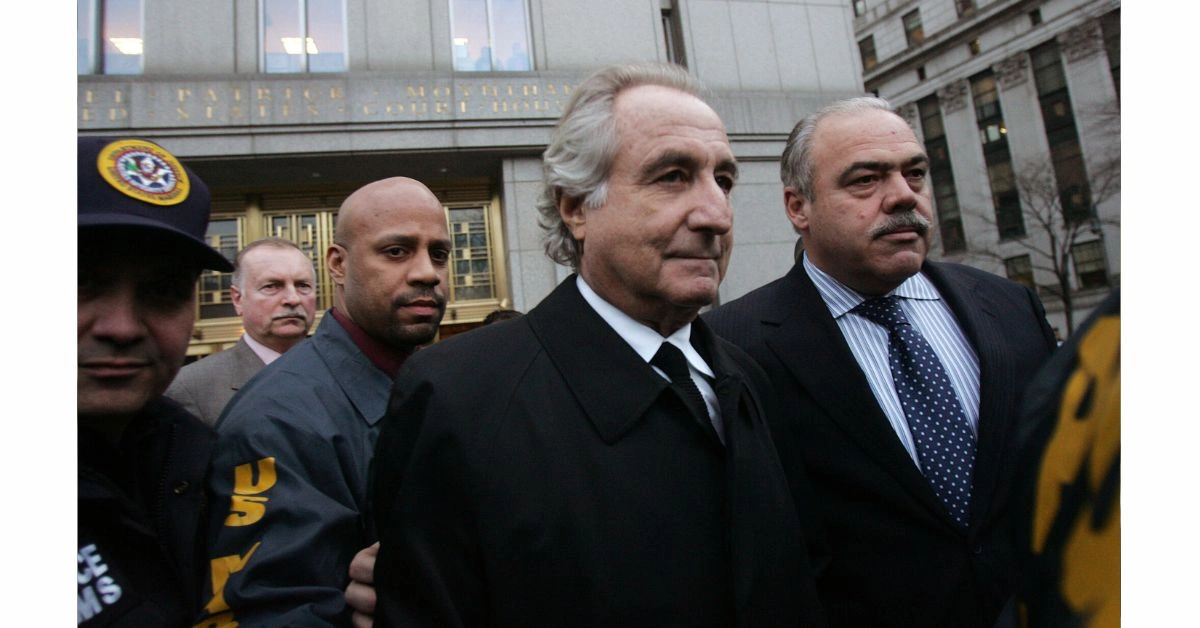The corporate world has witnessed several financial scandals over the years, shaking public trust and revealing the dark side of corporate governance. These scandals have not only led to the downfall of major companies but have also resulted in stricter regulations to prevent similar misconduct. Below, we delve into the top five financial scandals that left an indelible mark on history.
Table of Contents
1. Enron Scandal (2001)

The Enron scandal is one of the most infamous corporate frauds in history. Once a celebrated energy company, Enron collapsed under the weight of massive accounting fraud.
Key Details:
- What Happened: Enron executives used accounting loopholes and special purpose entities (SPEs) to hide debt and inflate profits.
- Impact: The company filed for bankruptcy in December 2001, wiping out $74 billion in shareholder value.
- Aftermath: Enron’s collapse led to the dissolution of Arthur Andersen, one of the top accounting firms, and the creation of the Sarbanes-Oxley Act, which introduced stricter corporate governance and auditing standards.
2. WorldCom Scandal (2002)

WorldCom, a telecommunications giant, became infamous for one of the largest accounting frauds in U.S. history.
Key Details:
- What Happened: WorldCom inflated its assets by over $11 billion, primarily by misclassifying expenses as capital investments.
- Impact: The scandal led to the company’s bankruptcy, the largest in U.S. history at the time, affecting thousands of employees and investors.
- Aftermath: CEO Bernard Ebbers was sentenced to 25 years in prison, and the scandal further emphasized the need for financial transparency.
3. Bernie Madoff Ponzi Scheme (2008)

Bernie Madoff’s Ponzi scheme is one of the largest financial frauds ever committed, defrauding thousands of investors over several decades.
Key Details:
- What Happened: Madoff promised high and consistent returns using a classic Ponzi scheme, paying old investors with new investors’ money.
- Impact: Losses were estimated at $65 billion, affecting individuals, charities, and institutional investors.
- Aftermath: Madoff was sentenced to 150 years in prison, and the scandal highlighted the need for stricter oversight by regulatory bodies like the SEC.
4. Lehman Brothers Collapse (2008)

The collapse of Lehman Brothers was a major trigger for the global financial crisis in 2008.
Key Details:
- What Happened: Lehman Brothers heavily invested in risky mortgage-backed securities and used excessive leverage, which backfired during the housing market crash.
- Impact: The firm filed for bankruptcy, leading to a ripple effect in global financial markets.
- Aftermath: The incident underscored the dangers of excessive risk-taking and lack of regulation in the financial sector, resulting in reforms like the Dodd-Frank Act.
5. Volkswagen Emissions Scandal (2015)

Volkswagen, the world’s largest automaker at the time, was embroiled in a scandal involving the deliberate manipulation of emissions tests.
Key Details:
- What Happened: Volkswagen installed software in diesel vehicles to cheat emissions tests, making the cars appear more environmentally friendly than they actually were.
- Impact: Over 11 million cars were affected worldwide, and the company faced fines and settlements exceeding $30 billion.
- Aftermath: The scandal damaged Volkswagen’s reputation and sparked greater scrutiny of emissions standards globally.
Lessons Learned from These Scandals
Financial scandals have far-reaching consequences, affecting employees, investors, and the broader economy. Key takeaways include:
- The importance of transparency and accountability in corporate governance.
- The role of whistleblowers in uncovering unethical practices.
- The need for stringent regulations to deter misconduct.
Frequently Asked Questions (FAQ)
1. What is the biggest financial scandal in history?
The Bernie Madoff Ponzi scheme is often regarded as the biggest financial scandal, with losses estimated at $65 billion.
2. What laws were introduced after the Enron scandal?
The Sarbanes-Oxley Act was introduced in 2002 to enhance corporate governance and auditing standards.
3. How can financial scandals be prevented?
Stronger regulations, ethical leadership, transparency, and rigorous auditing can help prevent financial scandals.
4. What was the impact of the Lehman Brothers collapse?
Lehman Brothers’ collapse triggered the global financial crisis of 2008, leading to widespread economic turmoil.
5. Why is corporate governance important?
Good corporate governance ensures accountability, transparency, and ethical behavior, reducing the risk of fraud.
Conclusion
By understanding these high-profile financial scandals, we can appreciate the importance of ethical practices and robust regulatory frameworks in maintaining trust in the corporate world. These scandals serve as stark reminders of the consequences of greed and the pivotal role of integrity in sustaining a healthy economic ecosystem.
Discover the Top 5 CRM Tools that can revolutionize your B2B sales process in our detailed guide: Top 5 CRM Tools to Transform Your B2B Sales Process.














